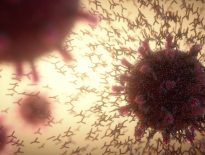Vaccination allows the creation of an effective and long-lasting defense of the body against the disease. In the confrontation with the COVID-19 pandemic, vaccination, with its pros and cons, is currently one of the solutions that science has offered to humanity.
There are questions that researchers have answered, but there are also other questions which still remain unanswered.
We will go through the indications, contraindications, and side effects of the anti-SARS-CoV-2 vaccines approved in the European Union.
Vaccination recommendations
The choice of the vaccine type one decides to be inoculated with is based on availability (stocks), personal preferences (depending on the number of doses someone is willing to receive), but also on assessing the possibility of side effects, depending on the pre-existing diseases of the person in question.
In Europe, the current recommendation is to vaccinate all people over the age of 12 with one of the four approved vaccines (Pfizer-BioNTech—the only one also approved for children older than 12; Moderna, Astra-Zeneca, and Johnson & Johnson—the last three are recommended for persons older than 16).
Patients who are vulnerable to the virus because of their age (older than 65) or suffer from associated chronic diseases were the first to receive the SARS-CoV-2 vaccine. Heart disease (high blood pressure, heart failure, heart arrhythmias, etc.), metabolic diseases (diabetes, obesity, etc.), cancers (organ or blood) are just some of the strong indications for vaccination.
In the US, France, Germany, and Israel, the administration of the third dose has already been approved 28 days after the second dose for people with low immunity due to disease or immunosuppressive drugs. These include cancer patients undergoing chemotherapy, those with lymphoma or leukemia, with bone marrow or organ transplants, patients with advanced HIV infections, or patients undergoing immunosuppressive therapy (e.g. with prednisone more than 20 mg/day, for longer than 14 days, etc.).
Vaccination timing is crucial for these patients, especially in relation to the administration of the immunosuppressive medication. It is recommended that the administration of the immunosuppressive drug be postponed for two to four weeks after the vaccination. It is also recommended that the vaccination be postponed for three months in patients who have undergone transplants.
The American College of Rheumatology recommends vaccinating patients with rheumatological and autoimmune diseases. Pregnant women and women who breastfeed can be vaccinated with any of the four approved vaccines. The protection offered by the vaccine has been shown to decrease progressively over a period of six to eight months, especially in people with low immunity, which is why it has been recommended that the third dose be given after this time has elapsed.
Adults older than 65, those between 18 and 64 years of age, and those at high risk of developing a severe form of the disease due to associated conditions are recommended to take the third dose to increase their immunity. Another category receiving this same recommendation are the medical staff and residents of social centers.
Contraindications
The contraindications to the SARS-CoV-2 vaccination are anaphylaxis (severe allergic reaction that can lead to asphyxia, death) and immediate allergic reactions (manifested by rashes), observed in the case of a previous dose of the SARS-CoV-2 vaccine or one of the vaccine components. Redness at the injection site after the first dose is not a contraindication to the second dose.
Precautions
Although some people with associated diseases do not have clear contraindications regarding the administration of the anti-SARS-CoV-2 vaccine, it is still recommended that it be administered with caution, in collaboration with physicians who know their medical history.
Patients suffering from thrombotic thrombocytopenic purpura (a condition that involves a risk of blood clotting and bleeding at the same time) should pay special attention to vaccination, because it can lead to an exacerbation of the underlying disease. In this situation, vaccination with mRNA-like products, which have been shown to have fewer thrombotic side effects, is recommended.
Also, patients with heparin-induced thrombocytopenia syndrome have an indication for vaccination with the mRNA rather than the DNA vaccine in the first 90 days after the onset of the disease.
A history of thromboembolic disease, venous thrombosis, thrombophilia or chronic anticoagulation is not a contraindication, but vaccination should be done with caution.
Mild and moderate side effects
All types of vaccines can be followed by mild to moderate side effects, including pain, redness, and swelling at the injection site, muscle aches, joint pain and headaches, fatigue, fever, and chills. They occur more frequently after the second dose and last between 24 and 48 hours. The elderly and people with low immunity develop these types of side effects less often. The Johnson & Johnson vaccine has also been associated with anxiety, tachycardia, and syncope.
Severe side effects
- Anaphylactic shock is a severe but rare side effect that can occur once in a million vaccinations.
- Myocarditis and pericarditis (inflammation of the heart muscle and pericardium) are more often correlated with the administration of mRNA vaccines (Pfizer and Moderna). Most of the cases described were mild or moderate. A study conducted in Israel, on 2.5 million administered doses, reported 54 cases of myocarditis, including one death due to cardiogenic shock. Another study, conducted in the United States, on 2.8 million doses administered to military personnel, reported 23 cases of myocarditis or pericarditis. These types of side effects may occur more frequently in adolescents and young males in the first week after the first dose of vaccine.
- The Guillain-Barré syndrome and Bell’s palsy (neurological disease manifested by numbness or paralysis of the lower and upper limbs, but also of the face) are more commonly correlated with vaccines that are based on the use of adenoviral vectors (Astra-Zeneca and Johnson & Johnson). A study in Europe of 51 million vaccinations reported 227 cases.
- Thrombotic or hemorrhagic events (occurrence of blood clots or bleeding) are more commonly correlated with vaccines that are based on the use of adenoviral vectors (Astra-Zeneca and Johnson & Johnson). A study of secondary thrombotic events following the administration of the Astra-Zeneca vaccine in Denmark reported a slightly higher incidence of thrombosis in the general population, which is why on March 15, 2021 some European countries decided to stop using this type of vaccine. Another study, conducted in the UK, on 291 million vaccinations, this time with Pfizer and Astra-Zeneca vaccines, reported after the first dose that in those who had the COVID disease, bleeding occurs three times more frequently, blood clots appear eight times more often, stroke occurs two times more often, and myocardial infarction occurs three times more often than in vaccinated persons.
Studies on the anti-SARS-CoV-2 post-vaccination effects are still ongoing. The ultimate goal is to stop the pandemic, pursuing the benefits, but also the side effects, with as few human victims as possible. Vaccines will not immediately end the coronavirus pandemic. We will probably live with this virus for a number of years to come. Vaccines, however, are an essential part of the strategy to return to normalcy.
Bianca Voinescu, MD, is an infectious disease specialist at the “Dr. Victor Babeș” Clinical Hospital, Bucharest.
Bibliography:
- Emanoil Ceaușu (coordinator), Tratat de boli infecţioase (Infectious diseases treaty), Medical Publishing House, Bucharest, 2020.
- Michelle Sholzberg, Grace H. Tang, Hassan Rahhal, Masaad AlHamzah et al., “Effectiveness of therapeutic heparin versus prophylactic heparin on death, mechanical ventilation, or intensive care unit admission in moderately ill patients with covid-19 admitted to hospital: RAPID randomised clinical trial”, in The BMJ vol. 375, p. 2400, 14 Oct. 2021, https://www.bmj.com/content/375/bmj.n2400
- Kathryn M. Edwards, Walter A. Orenstein, “COVID-19: Vaccines to prevent SARSCoV-2 infection”, Up to Date, 22 Oct. 2021, https://www.uptodate.com/contents/covid-19-vaccines-to-prevent-sars-cov-2-infection?search=vaccination%20&source=search_result&selectedTitle=3~150&usage_type=default&display_rank=3



















